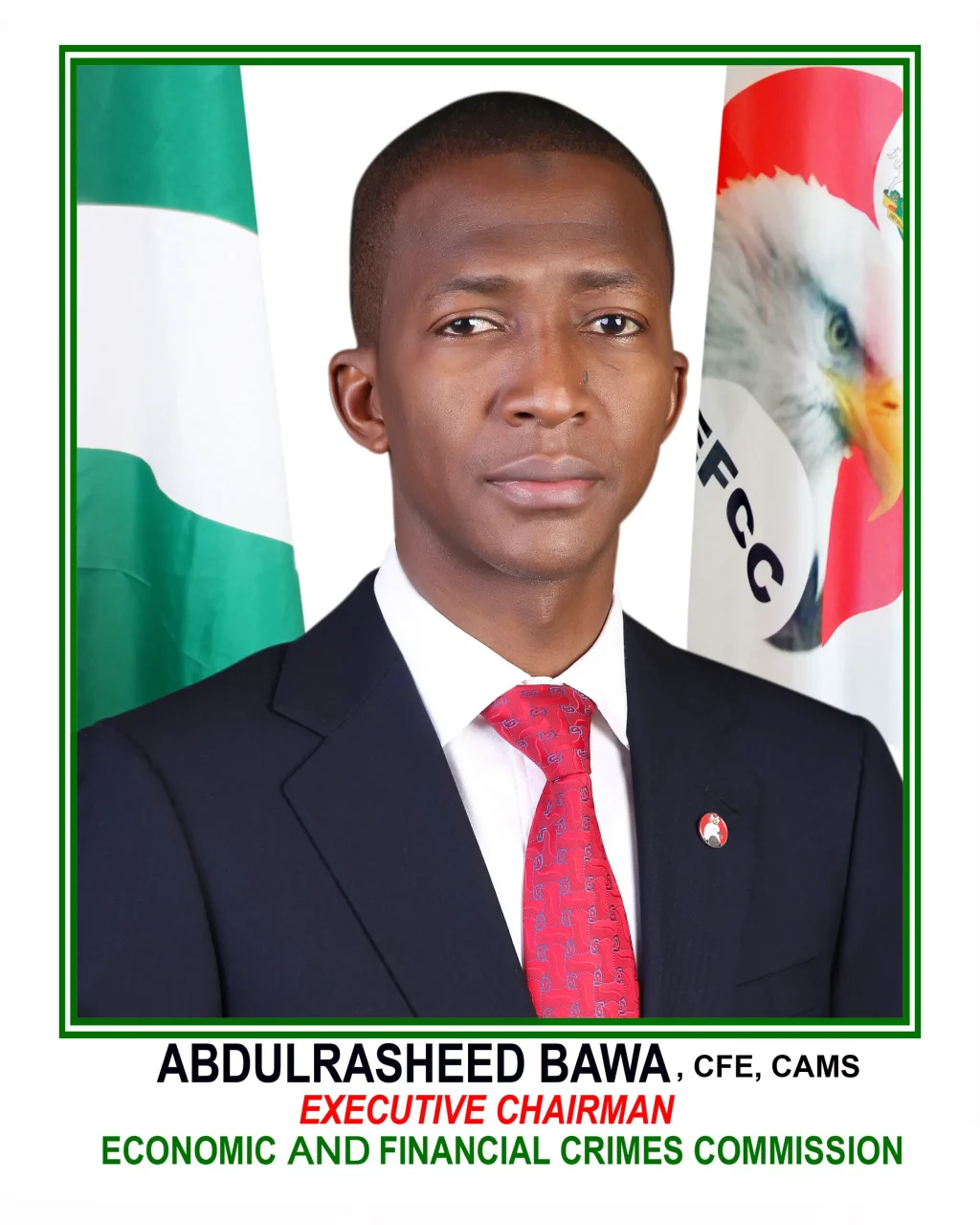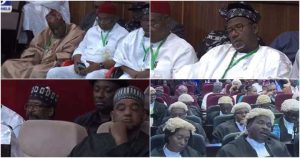EFCC BOSS : Lawyer Lent Support To Kogi High Court Ruling, Insists Bawa Must Comply, Go To Kuje Prison

Share this Post
Following the Court Contempt conviction of the Chairman, Economic, Financial Crimes Commission, EFCC, by a High Court in kogi state, the office of the Inspector General of Police, IGP, has acknowledged receipt of order to arrest, send the Agency’s boss to prison.

This is even as a renowned Senior Advocate of Nigeria (SAN), Ola Olanipekun, has called on the Inspector-General of Police, to comply with a court order that committed the Chairman of the Anti Graft Agency , Abdulrasheed Bawa to prison for contempt.
The senior lawyer, who accused the Chairman of trying to cause anarchy in the country by flagrantly disobeying court orders, said Bawa had recently been committed to prison in a similar ruling by a Federal Capital Territory High Court in November.
His statement came just as the office of the IGP received and acknowledged the order committing Bawa to prison on Wednesday.
Speaking on Arise Television, the Senior Advocate of Nigeria argued that no Nigerian or foreigner, no matter how highly placed should be allowed to rubbish the courts, noting that the same instrument put the EFCC boss in office.
“In fact, the higher the position you occupy, the greater the burden of responsibility on you to show good example and live within the ambit of the law.
“Nobody, nobody at all, no matter how highly placed, no matter the position you occupy, not even the President of Nigeria, can disobey court order,” he stated.
Olanipekun also said that, “The Inspector-General of Police is going to carry out that order, he is going to go to prison or at the earliest time possible, he goes back to that court to go and purge himself of the contempt. All he has to do is to go and release that particular citizen and if there are other orders that the court has made, like in this particular case, the court has made an order for an apology to the citizen for so detaining him in flagrant breach of his fundamental human rights.
“So he has to go ahead and make that apology. We must comply with the law. We must realise that this is a Federal Republic of Nigeria, a country that is founded on law, on procedure, on rule of law.”
It would be recalled that Justice R.O. Ayoola of the Kogi State High Court, in his judgement on Monday, granted the application for committal to prison of the EFCC chairman for disobeying a court ruling delivered on November 30, 2022, wherein the EFCC chairman was directed to produce the applicant in the case, Ali Bello.
Ali Bello had dragged Bawa to court for arresting and detaining him illegally, with the court ruling in his favour, only for the EFCC to arraign him for alleged money laundering three days after the ruling.
Insisting that the anti-graft agency boss could not effect any action without first obeying the court order that sent him to jail, the learned silk noted that the actions of the EFCC boss amounted to lawbreaking and could trigger anarchy in the land.
Olanipekun further said, “Over the years, EFCC had been having a running battle with the law, we must realise that Section 34, in fact, the entire Chapter 4 has to do with the Fundamental Human Rights of Nigerians, and this is the area where EFCC always has problems.
“Section 34 talks about the dignity of the Nigerian person. You don’t just treat people anyhow. The fact that somebody has a case doesn’t mean he has lost his citizenship.
“There is presumption of innocence, not only when you are taken to court, it also applies when you are being investigated. The degree of innocence when being investigated is even higher than when taken to court. A man has his right to fair hearing.”
Explaining why Bawa has to be jailed, the SAN said, “The order is that he should be committed to prison until he purges himself of the contempt. What was it that the court asked him to do that he failed to do? He was asked to produce Citizen Bello in court, he didn’t produce him. Let me make something clear. It was not as if when the court made the order, he didn’t comply and the order of committal was made, no.
“There is a procedure. He did not comply; Form 48 was served on him, to let him know that ‘your disobedience has consequences.’ He ignored it. Form 49 was served on him for him to come and show cause why he should not be committed to prison for contempt of court, he ignored it. A motion was filed and served on him, giving him notice that we are going to move the court to give an order for you to be committed for contempt and you will be committed to prison, he ignored it.
“Well, at the last moment, the lawyers came to court and they could not give any reasonable argument so the court granted the application and made an order of committal. So he goes to prison.
“The Inspector-General of Police is going to carry out that order, he is going to go to prison or at the earliest time possible, he goes back to that court to go and purge himself of the contempt. All he has to do is to go and release that particular citizen and if there are other orders that the court has made, like in this particular case, the court has made an order for an apology to the citizen for so detaining him in flagrant breach of his fundamental human rights. So he has to go ahead and make that apology.
“We must comply with the law. We must realise that this is a Federal Republic of Nigeria, a country that is founded on law, on procedure, on rule of law. He must comply with the orders. It is not something that he can just walk away from. And if he doesn’t purge himself of the contempt, he is going to remain in prison for as long as it takes him to purge himself of the contempt. If he purges himself of the contempt within 48 hours, he gets released from the prison, he doesn’t have to spend the whole of 14 days there. But the law has to be complied with.
“There is an order now for the Inspector-General of Police to comply with. So, we are now waiting to see whether the IGP will comply with this order. If he doesn’t comply, he himself will become liable for committal for contempt.”
“We can’t just continue as if the law doesn’t exist. The EFCC or the Police or any institution whatsoever, they are all set up by statute, so, they must operate within the ambit of the law,” Olanipekun noted.










